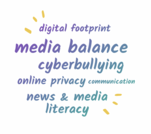
Let's learn how to be a good digital citizen.
- Subject:
- Educational Technology
- Material Type:
- Lesson
- Author:
- KASARAH TYSON
- Date Added:
- 07/06/2022

Let's learn how to be a good digital citizen.
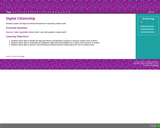
Students will explore the legal and ethical dimensions of respecting creative works.
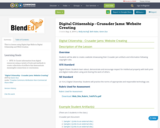
This is a lesson using Digital Age Skills in Digital Citizenship and Web Creation
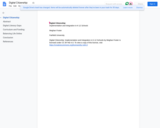
A literature review of current Digital Citizenship trends in the K-12 Classroom.

This sequenced collection, curated by Seattle Public School educators, contains openly-licensed Digital Citizenship resources for K-5 educators.

This lesson is designed for students in grades 3-4 and discusses some important ways to keep your private information safe on the internet

This lesson is designed for students in grades 2-4 and discusses some important strategies to keep private information safe on the internet.

Let's learn how to be a good digital citizen.
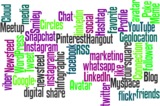
This lesson will focus on digital citizenship.

This is a lesson plan that includes brief instructions, videos, powerpoints, and reading material to help introduce the topic of digital citizenship to your students.
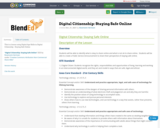
This is a lesson using Digital Age Skills in Digital Citizenship - Staying Safe Online
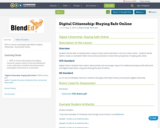
This is a lesson using Digital Age Skills in Digital Citizenship - Staying Safe Online
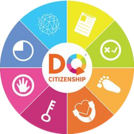
Students explore multiple forms of digital etiquette and citizenship. They research current events based around digital concerns and innovations. Eventually, they apply that knowledge to their own lives and use of technology to develop 5 top guidelines for digital device usage for their peers. Students share their presentations and projects in an exhibit-style venue. Using a survey, students vote for their top choices, eventually selecting one choice to implement.Standards:CCSS English Language Arts (Grade 8)Ohio Standards for Technology
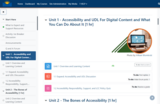
Version 2 Released: 2/10/2024
This OER course “Digital Course Accessibility for Educators” was developed thanks to a grant project awarded to Lane Community College in Sept. 2023.This course is meant to be implemented in spaces where people are creating courses and course content for students of any kind. It has a focus and theme around education and online learning, teaching instructors how to implement accessibility and Universal Design for Learning (UDL) in the learner’s online course content. The format of this course was created as an online facilitated course and is estimated to take around 10 hours to complete.
Current formats provided include:
Moodle backup file. (Uploads to Moodle and other LMS’s that have a Moodle import option)
Moodle Common Cartridge file. (Uploads to Canvas, Blackboard, and other LMS’s, but may have more limited importability.)
Google Drive course file. (Includes all content in Moodle and common cartridge but in Google docs. Usable for anyone who does not have an LMS listed or needs access to source files for those using LMS’s above.)
Preview the Course: https://classes.lanecc.edu/course/view.php?id=122173
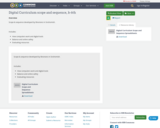
Scope & sequence developed by librarians in Snohomish. Includes: How computers work and digital tools Balance and online safetyEvaluating resources

This self-directed lesson introduces digital addiction as a compulsive behavior, covering its definition and primary symptoms. Learners will identify the signs of digital addiction and reflect on their own technology habits to recognize potential digital dependency.
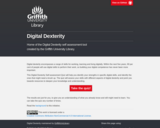
This Digital Dexterity Self-assessment Quiz will help you identify your strengths in specific digital skills, and identify the ones that might need a brush up. The quiz will assess your skills with different aspects of digital dexterity and point you towards resources to deepen your knowledge and understanding.
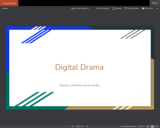
Digital Drama is a part of digital users experience, especially in the middle and high school years. In combination with Common Sense Media I have created a short lesson with reflection questions. The lesson is purposely short in order to engage students.
There are reflection questions at the end. The reflection questions should be answered individually and then small group discussion. I would ask each group to give a brief overview of their discussion.
It's important for students to stop and think before they act and this lesson may help them see how their actions can and do affect others.
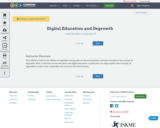
This OER first looks at the effects of capitalism and growth on the environment, and then introduces the concept of degrowth. Next, it will look at how education and digital education in particular can adapt itself to the concepts of degrowth in order to be sustainable and not harm the environment.
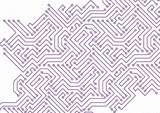
We partnered with students to create Digital Essentials, a series of online modules for students to quickly build digital skills for study and work.
The modules cover different digital capabilities for creation, communication, data, information, learning and functional skills.
The modules are on the Pressbooks platform and include H5P content for interactivity and self-assessment. There is also a short quiz at the end of each module to check your knowledge.
The modules include:
Accessibility
Artificial Intelligence
Choose the right tool
Communicate and collaborate
Digital security
eProfessionalism
Find and using media
Information essentials
Internet essentials
Social media
Types of assignments
Working with data and files
Write, cite and submit